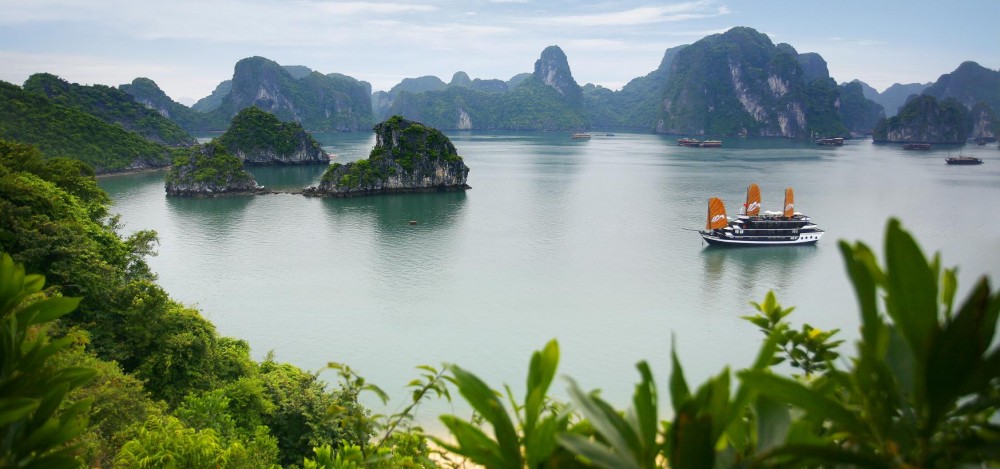We were warmly welcomed into a shaded room, with jackfruit pieces neatly cut and laid out on tables set up for us, by a – later to become a few – Viet Cong veterans from the American War. I distinctly remember his animation as he relayed a few stories from his time during the war. Throughout the visit, I heard some recurring themes that had been introduced by the course materials and earlier visits in Saigon, especially about the inevitably of war in Vietnam for some Vietnamese people who lived during the years of occupation. In the beginning of this course, I found it hard to understand how Vietnam was able to repair relations with the United States, and how diplomatically successful they seem to be when dealing with other countries as well. This idea about war, however, helped me reconcile some of these contradictions in my head. The VC veteran reiterated that war happens, and when it does, the countrymen mobilize to protect themselves and the country. War is part of the Vietnamese identity in this way. Directing anger at the foreign invaders is not a personal attack on the faces that actually fight on the ground, it is a way to preserve Vietnam and it is a constant struggle. He said this again when asked about whether or not he feels some kind of solidarity with the people of Iraq and Afghanistan. From what I gathered from the translation, he felt for them because he – and the Vietnamese people – know what it is like to suffer, but he also reiterated the fact that sometimes war happens and people have to deal with the consequences. He did not talk much about American foreign policy, or war policy specifically, but I sensed that he would not hesitate to voice disagreement with these policies if he did not like them, considering his ease in separating people from governments. That being said, it was more important for him to prioritize the people’s suffering and their spirit of resilience than details about the perpetrators of this suffering. When Americans came to fight his side, the VC veteran recognized the humanity in them, and he separated their allegiance to their country from them as men, even going so far as to tell us that the American soldiers were forced to fight for the American government, and he could not really blame them.
The second recurring theme was exactly this – that those fighting the VC were forced to fight for the other side, Americans and Vietnamese. Not only were they forced in his mind, they were not particularly good at fighting because of it. From what I gathered from his talk, the veteran believes that because the VC fought on the side of justice, they were better at the physical fighting. Those who were forced to fight for the other side must have recognized, at least at some level, the nobility of the VC, meaning that the main reason that they continued to fight against the VC was because of the pressures of the American government. This allowed him to both continue fighting, be proud of his service, and understand the humanity of his opponents, blaming the fragility and insincerity of their cause and not them.
The last part of the meeting that stuck with me was the brief discussion of Agent Orange. For the most part, the veteran was quite forgiving of the Americans – except for Agent Orange. That was one action that the veteran could not understand, and could not forgive. It did not affect his attitude towards us or towards his visit to the U.S., but it clearly stuck in his mind, especially because the victims and their children continue to suffer the consequences of the attack. I wonder how other Vietnamese who lived through the war feel about Agent Orange – to what extent does it taint their feelings toward America? How much does Agent Orange still affect Vietnam today, especially those who did not directly suffer from the chemicals?
